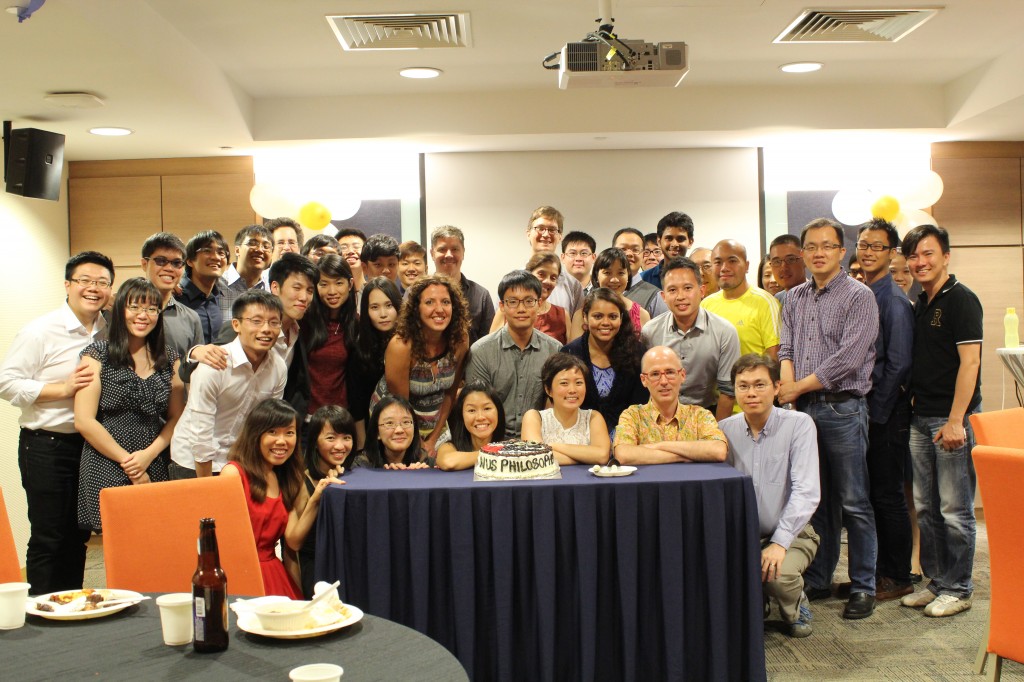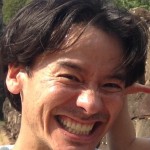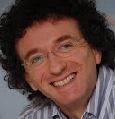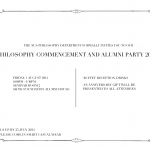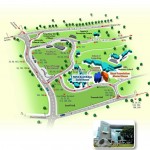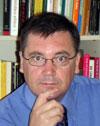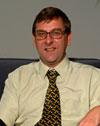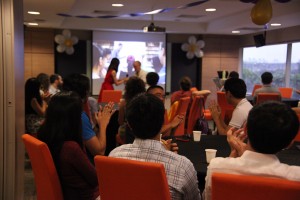
For the second time running, the Department of Philosophy held its Commencement and Alumni Party at the Shaw Foundation Alumni House (1st August). The party saw a turnout of nearly 50 guests comprising honours and graduating students, Alumni, and Faculty members, all mingling over food and drink. This event also marked the 60th anniversary of the philosophy department, a significant milestone in its history.

The event was hosted by emcee Xue En, an honours student of the department. The festivities were officially kicked off by acting Head of Department, A/P Michael Pelczar. The food was a delicious spread of dishes ranging from Shepherds’ Pie to Laksa. All these were complemented by a mix of unique craft beers, kindly sponsored by several faculty members. Much as the night was about food and drink, it was also about philosophy and reconnecting with old friends: Alumni got to reacquaint themselves with old classmates and teachers, while graduating students were given an opportunity to forge new friendships with those that have graduated before them. The attendees spent the evening exchanging both philosophical ideas as well as snippets of their personal experiences, having fruitful discussions on all aspects of life.
 During the party, Cheryl, a member of the graduating cohort delivered a speech on her own experiences in the Department of Philosophy, fondly recalling the unique experiences that she had during her time as a student and her year-long exchange in Edinburgh. Without a doubt, one of the highlights of the evening was a speech by former head of the Philosophy department, Prof. Ten Chin Liew, who treated everyone to reminiscences of his experiences at the department, both as a young undergraduate, and also as a faculty member. While acknowledging that some may be unhappy to have their youthful mischief so exposed, he thought the risk worth taking given that some of the people mentioned are already dead, or too far away to take their revenge, he said with a twinkle in his eye – much to the amusement of all who were present.
During the party, Cheryl, a member of the graduating cohort delivered a speech on her own experiences in the Department of Philosophy, fondly recalling the unique experiences that she had during her time as a student and her year-long exchange in Edinburgh. Without a doubt, one of the highlights of the evening was a speech by former head of the Philosophy department, Prof. Ten Chin Liew, who treated everyone to reminiscences of his experiences at the department, both as a young undergraduate, and also as a faculty member. While acknowledging that some may be unhappy to have their youthful mischief so exposed, he thought the risk worth taking given that some of the people mentioned are already dead, or too far away to take their revenge, he said with a twinkle in his eye – much to the amusement of all who were present.

To commemorate the special occasion, a mug specially designed by A/P John Holbo, very much our resident artist, was presented to each guest. It carries the byline-“Come for the answers, stay for the questions”—familiar to several generations of philosophy students by now. The Office of Alumni Relations also generously sponsored gifts for each graduating student. A/P Holbo’s talents were further showcased on the design of the department’s 60th anniversary cake. If the mug bears the motif of an Athenian coin, the cake carries a quote from Confucius’ Analects passage 2.4, and a doodle of the Master himself. The juxtaposition of the two designs—one alluding to the beginnings of the discipline in the ancient West, the other to the parallel sources of wisdom’s study in the East—highlights the inclusive nature of the department. After a bout of photos with all the guests, the cake was cut by Professor Pelzar and Professor Ten and witnessed by members of the faculty present.

The event concluded with closing words by A/P Loy Hui-Chieh, and the promise of an even better party next year. As the guests reluctantly prepared to leave, they ended the evening by taking pictures with specially prepared Polaroid cameras, taking home a personalised memoir of their time at the party, which was nothing short of a rousing success.
For more photos, please visit our facebook photo album of the event.
